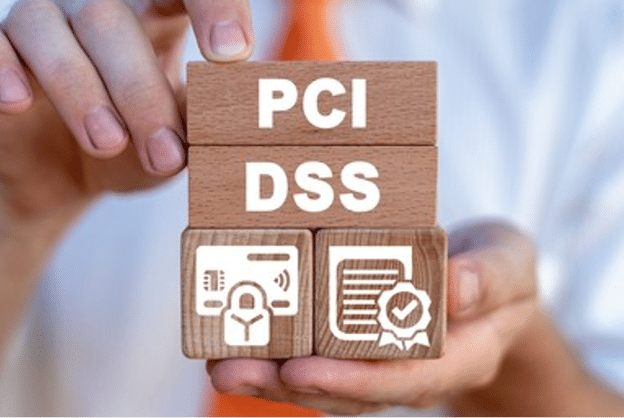An Overview of the PCI DSS Requirements that all Merchants should know
- December 14, 2022
The Payment Card Industry Data Security Standard (PCI DSS) is a set of security standards designed to ensure that all companies that accept, process, store or transmit credit card information do so securely. These requirements are aimed at protecting cardholder data and reducing fraud and security breaches. Knowing these 12 requirements can help merchants, businesses and investors create a secure payment environment for their customers.

- Install and maintain a firewall configuration to protect cardholder data: Firewalls are used to protect cardholder data from unauthorized access by monitoring inbound and outbound traffic. This means that only authorized users can access the system, preventing malicious actors from gaining access to sensitive information.
- Do not use vendor-supplied defaults for system passwords and other security parameters: Many systems come with default passwords that allow anyone who knows them to gain access to the system. Vendors should make sure they change these default passwords as soon as possible in order to prevent unauthorized access.
- Protect stored cardholder data: Stored cardholder data should be encrypted using strong encryption algorithms such as Triple DES or AES-256 in order to prevent malicious actors from obtaining sensitive information such as credit card numbers or PINs.
- Encrypt transmission of cardholder data across open, public networks: Anytime cardholder data is transmitted over an open, public network such as the internet, it should be encrypted using strong encryption algorithms such as SSL/TLS so that it cannot be intercepted by malicious actors.
- Use and regularly update anti-virus software or programs: Anti-virus software or programs are used to detect and remove malicious software from computers or networks in order to protect against viruses, worms, trojans and other forms of malware which could compromise the security of stored cardholder data.
- Develop and maintain secure systems and applications: Organizations should develop secure systems and applications which adhere to industry best practices for protecting sensitive customer data such as credit cards numbers or PINs from unauthorized access or theft.
- Restrict access to cardholder data by business need-to-know: Access to sensitive customer information should only be granted on a need-to-know basis so that only authorized personnel can view or modify this information when necessary for legitimate business purposes (e.g., processing payments).
- Assign a unique ID to each person with computer access: Each user should have their own unique ID which allows them to log into the system but prevents others from accessing it without their authorization (e.g., username & password).
- Restrict physical access to cardholder data: Physical access restrictions should be implemented in order to prevent unauthorized individuals from gaining physical access to stored customer information (e.g., locked doors & safes).
- Track and monitor all access to network resources & card holder data: Organizations should track & monitor all activity related to accessing network resources & customer information in to order protect against any potential security incidents (e.g., suspicious login attempts).
- Regularly test security systems & processes: Organizations must regularly test their security systems & processes in order identify any potential weaknesses before they can be exploited by malicious actors & take corrective measures if necessary (e.g., vulnerability scans & penetration testing).
- Maintain a policy that addresses info security for all personnel Organizations must develop & maintain an info security policy which outlines acceptable use guidelines for employees handling customer info (e.g., no sharing of login credentials).
The PCI DSS is an important set of standards which helps ensure that organizations are taking appropriate measures when it comes to protecting sensitive customer info like credit card numbers & PINs. By following these 12 requirements, organizations will not only reduce fraud but also build confidence amongst customers knowing that their personal info is being handled securely. Merchants, businesses, investors, etc. must understand these guidelines if they want to stay compliant with PCI DSS regulations. This will help them keep their customers’ financial info safe while simultaneously building trust with stakeholders. Thus, implementing proper PCI DSS measures can give organizations peace of mind while allowing them to focus on what matters most – providing excellent services.
Conclusion
At Global Legal Law Firm, our lawyers are familiar with the rapidly changing nature of electronic payments processing, and the ever changing regulations involved, with decades of expertise in ISOs, processors, commercial collections, credit card brands, and other forms of electronic payment processing litigation. Let us guide you through this new and volatile environment, rather than attempting to navigate it on your own.
Recommended Posts
-

The Importance of Reviewing NDAs in the Electronic Payments Industry
Non-Disclosure Agreements (NDAs) are crucial legal contracts designed to protect sensitive...
Read More -

How a Severance Agreement Attorney Can Protect Your Rights
Ensuring Fair Compensation and Legal Compliance in Employment Separation Navigating...
Read More -

The Role of General Counsel in Payment Industry Compliance
Overview of the Payment Industry The payment industry has experienced exponential growth and transformation...
Read More